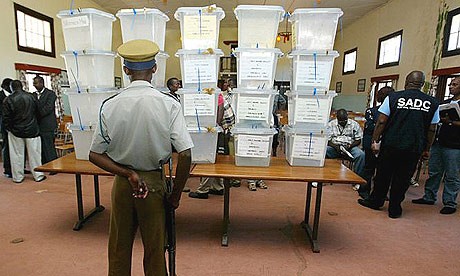
FORMER Home Affairs minister Dumiso Dabengwa has confirmed that shadowy Israeli company Nikuv International Projects was hired by the government in the 1990s, but its contract did not involve the voters’ roll.
REPORT BY MOSES MATENGA
Nikuv has been accused by the MDC-T of manipulating the voters’ roll in favour of Zanu PF after allegedly being paid $10 million to fix the July 31 elections.
In an interview yesterday, Dabengwa confirmed that his ministry hired the company in 1995, but said Nikuv’s role was restricted to the issuance of identity cards and passports.
Dabengwa said he was surprised to discover that the company was now involved in electoral processes.
“The company was contracted by the Home Affairs ministry in 1995-1996 to carry out the computerisation of ID cards, birth certificates and passports. It was not involved in electoral processes.
“If it did, it was certainly after my time, maybe around 2000,” he said.
“I realise that it is now involved in the electoral processes.
- Chamisa under fire over US$120K donation
- Mavhunga puts DeMbare into Chibuku quarterfinals
- Pension funds bet on Cabora Bassa oilfields
- Councils defy govt fire tender directive
Keep Reading
“It had just been established when we hired it and its profile was confined to that (IDs and passports) and now it has expanded to elections.”
Asked if the company could have had a hand in the just-ended harmonised polls which progressive parties claim were rigged, Dabengwa said: “From their profile, they could have been involved, but I don’t know. I can’t confirm or deny that,” the Zapu leader said.
According to a dossier accompanying a court application lodged with the Constitutional Court (Concourt) last Friday by outgoing Prime Minister Morgan Tsvangirai challenging President Robert Mugabe’s victory, Nikuv received over 50 payments between February 4 and July 30 this year averaging $200 000 each.
The MDC-T leader, in his court papers, said the Zimbabwe Electoral Commission last month had denied that Nikuv was involved in the preparation of the voters’ roll.
“However, we have it on record that Nikuv has been operating in Zimbabwe since the 1990s,” he said in the papers filed at the Concourt.
On its website, Nikuv notes its successes in Africa in several areas including using and implementing the most advanced state-of-the-art technologies and engaging in electoral processes.










